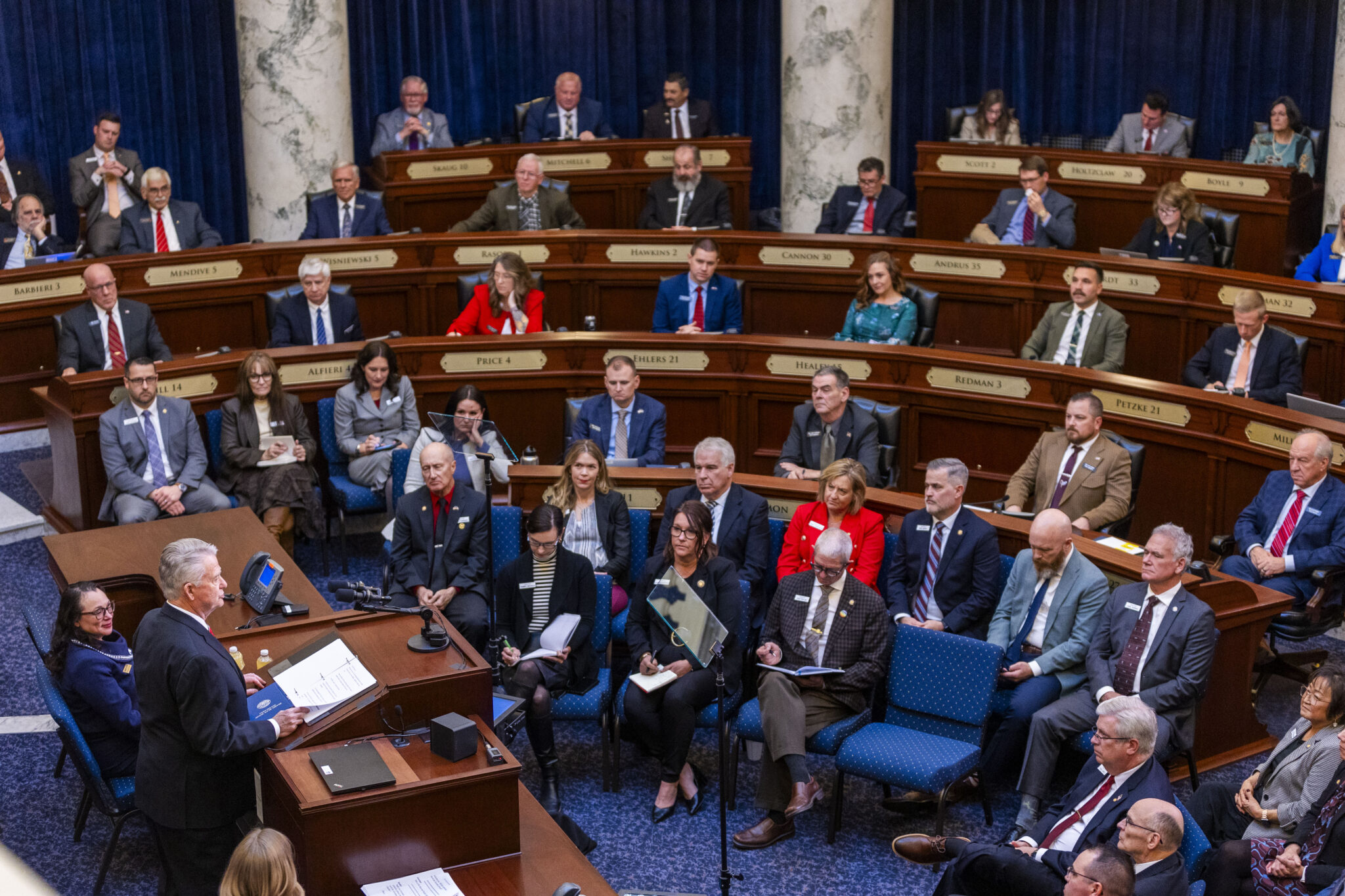The Idaho Legislature has passed a bill allowing the death penalty for adults convicted of sexually abusing children age 12 and younger. House Bill 380 now heads to Gov. Brad Little for final consideration.
The bill, cosponsored by Rep. Bruce Skaug, R-Nampa, and House Assistant Majority Leader Josh Tanner, R-Eagle, introduces a new charge: aggravated lewd conduct with children age 12 and younger, which would be eligible for the death penalty. It also establishes mandatory minimum prison sentences for aggravated lewd conduct with minors under age 16 that do not qualify for the death penalty.
The bill passed the Senate on a 30-5 vote, with opposition from three Democrats and two Republicans. The House had previously approved it unanimously, 63-0, with seven members absent. Once transmitted to Gov. Little, he will have five days, excluding Sundays, to either sign the bill into law, allow it to become law without his signature, or veto it. If enacted, the law would take effect July 1.
Supporters Say Bill Sends a Clear Message
Skaug has argued that Idaho has some of the most lenient child rape laws in the country. Sen. Doug Ricks, R-Rexburg, a cosponsor, said the bill ensures severe consequences for the worst offenders.
“Unlike most states, Idaho currently lacks mandatory minimum sentences for these horrific crimes — meaning judges have the discretion to place the worst offenders on probation,” Ricks told the Senate. “This legislation ensures that those who commit the most severe offenses against children face significant consequences, sending a clear message that Idaho will not tolerate the sexual abuse of minors.”
Currently, Idaho law only allows the death penalty for first-degree murder with aggravating circumstances.
Idaho Senate Minority Leader Melissa Wintrow, D-Boise, opposed the bill, stating that while child abuse should carry severe penalties, this bill represents a significant policy shift for the state.
“Unfortunately, I only heard from four sources regarding this bill. And that feels very uncomfortable, when I think we need a vigorous and long debate and discussion,” Wintrow said.
Potential Legal Challenges
The U.S. Supreme Court ruled in Kennedy v. Louisiana (2008) that imposing the death penalty for child rape is unconstitutional. However, Florida passed a similar law in 2023, followed by Tennessee in 2024.
Anticipating a legal challenge, Skaug told lawmakers he believes the Supreme Court could rule differently today.
“You can say, ‘Well, that’s unconstitutional, Bruce. Why would you bring that?’ Well, it was — according to a 5-4 decision in 2008. I don’t think that would be the case today,” Skaug, an attorney, told lawmakers. “That’s my professional opinion. That’s the opinion of many other attorneys.”
Skaug has stated that the death penalty would be rarely pursued under this bill. Currently, Idaho has nine inmates on death row.
Concerns Over Legal Ramifications
During a Senate Judiciary and Rules Committee hearing, David Martinez of the Idaho Association of Criminal Defense Lawyers testified against the bill, warning that it could apply more broadly than intended.
“The bill doesn’t focus on ‘the worst of the worst,’ could potentially expose victims to decades of reliving trauma, and fails to account for Idaho’s shortage of qualified death penalty defense attorneys,” Martinez said.
The bill lists more than a dozen aggravating factors for seeking the death penalty, and Martinez argued that many cases would qualify under those criteria.
Holly Rebholtz, representing the Idaho Prosecuting Attorneys Association, disagreed, stating that aggravated lewd conduct cases would be rare.
“I don’t think these crimes are going to come into play very often. But when they do, they are the most serious crimes we see. And again, the prosecutors believe that the most serious crimes against children deserve a serious punishment,” Rebholtz testified.
Skaug estimated that, in a worst-case scenario, the bill could lead to two death penalty cases per year, with costs reaching up to $1 million per case.
Opposition From Some Republicans
Sen. Dan Foreman, R-Moscow, a retired police officer and combat veteran, voted against the bill, arguing that society is blurring the line between justice and revenge.
“I see society starting to go down a dangerous road here. Not just with this bill, but in general — where we are starting to equate revenge with justice. And that’s a slippery slope,” Foreman said.
Senate Majority Leader Lori Den Hartog, R-Meridian, countered that the bill is about accountability, not retribution.
“When I look at the types of circumstances that would lead to these charges — and I think about the irreparable and irreversible damage done to a child who then has to live with the consequences of these actions upon them for the rest of their lives — I think this is about accountability and about how we value life,” she said.
Second Attempt at Passing a Similar Bill
This is the second time Skaug and Tanner have introduced a child sex abuse death penalty bill. Last year, their proposal passed the House but never received a hearing in the Senate.
The new bill also establishes mandatory minimum prison sentences for aggravated lewd conduct with minors under 16. The minimum sentence would be 25 years in prison.
Under the bill, lewd conduct includes, but is not limited to, “genital-genital contact, oral-genital contact, anal-genital contact, oral-anal contact, manual-anal contact, or manual-genital contact” when intended to arouse, appeal to, or gratify “lust or passions or sexual desires.”
Gov. Little’s decision on the bill is expected in the coming days.


You must be logged in to post a comment Login